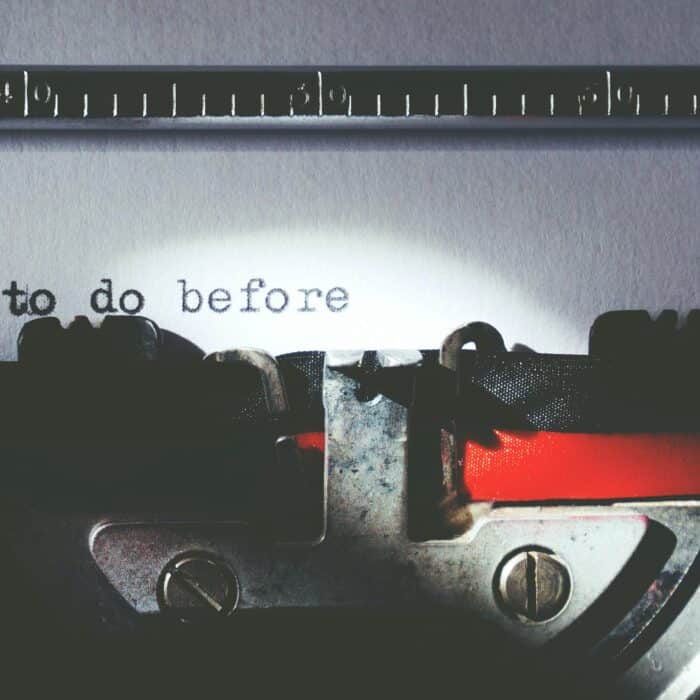Feb 16, 2016
Guest Blogger: Jill Johnson-Young
ASD is pleased to share this month’s guest blog post in our new blog series from Jill Johnson-Young. The blog series is focused on aftercare, self care, and helping families with grief recovery. Jill Johnson-Young, LCSW, is a clinical therapist in private practice in Riverside, California. She is the co-owner of Central Counseling Services, where she specializes in grief and loss for adults and children, as well as individual and family therapy. Jill is certified as a Grief Recovery Specialist through the Grief Recovery Institute and has more than a decade of experience as a medical social worker in hospice both in California and Florida. She holds a Master’s degree in Social Work from the University of South Florida and is licensed in California. Jill is a member of the Orange Belt Funeral Director’s Association. Her passion is seeing people work through the losses they experience and finding a new path where they can thrive in a life they choose.
When a Funeral Director Buries Family
Funeral Directors face grieving families daily. You see the tears, comfort the survivors, suggest appropriate attire for the burial and help select the flowers and all the other details that nobody ever thinks about until you bring them up. You ask for that picture- what did the deceased look like before illness? Before the accident? How do loved ones want to remember the person who passed?
The family leaves, and you get to work- death certificate processing, casket ordering, escorts, transportation and, of course, the officiant. Eventually you or your colleague will go to the back or the prep room offsite and that loved one will be embalmed so their family will hopefully have that last memory as they wished. You do it with care, you do your best, and you position them so they will lie well in the casket. You make sure not to forget the earrings or the rosary, you do it all because you care – but this is someone else’s loved one.
Then that call comes and it’s not someone else’s spouse or mom or uncle—it’s yours. You knew it was coming, or you didn’t. Ready or not, you have decisions to make. Are you helping with the removal and taking them into your care? Who will make decisions, and sign with them? You know what decisions need to be made and even in the family of a funeral director many times preneed hasn’t been done. Is this going to be a cremation? Does that mean you go along to meet the family for witnessing after an ID view you arrange? If it’s going to be an open casket, who is going to embalm, dress, do cosmetics and hair?
There isn’t a right or wrong answer. Let me say that right here. Your family may have an unrealistic expectation that you will want or are able to manage absolutely everything. You may not be able to simply because you can do this for someone you never knew, but not for your mom. Or, you may insist upon doing it all, causing concern among other employees. Let’s look at both scenarios.
The funeral director I am married to has transported and done all of the care for a mom, uncle, grandmother, and multiple close friends. Right now there is another close relative who means everything and the plans are set for all the care to be done personally and a home viewing to take place. When we were at the CANA convention earlier this month, someone asked why my funeral director would want to do so. Below are a few reasons why:
- It can be a burden to another mortician to try to make a colleague’s loved one look the way they wanted them to.
- Family may not want anyone else to be involved- they are expecting their personal family mortician to manage everything.
- It may be a way of coping at the time of death so the emotions are put on hold until after everything is over.
- It may be a final act of love for someone special.
Another funeral director we know wants nothing to do with handling the personal care after a loved one dies. She will manage the service arrangements, select the casket, and create a personalized service. However, she wants someone she knows and trusts other than herself to do the embalming and dressing and casketing. That’s too emotional for her, too hard. And that’s absolutely okay too. She knows her limits, and she’s made them clear to her family. She even knows how she wants her own cosmetics to be done after she dies. We had that discussion at dinner with our oldest (now adult) daughters at the table. They rolled their eyes.
Have you thought about your own comfort level when death comes to your own family? Does your family know where you stand, and why? Can they respect your wishes, and allow you to do what you can, but not expect you to do more than you really should for your own good? More importantly, do your family members know what they want for themselves and their family members, and have they discussed it with you or someone else? The biggest issue in any family where there are misunderstandings and hurt feelings is miscommunication. Even with this issue it’s not whether you can see yourself embalming your mom or sister—it’s whether you have made your plans clear, and if they have thought through their own plans and assumptions.
When I worked with a young man last weekend we were trying to find a way to help him understand why a parent wasn’t getting what he was saying, and why he was jumping to conclusions and reacting to them without checking his assumptions first. I tried puppets, we made a chart on butcher paper- nothing was making sense. Then he mentioned he was hungry. Yes! How to double check what someone is thinking and feeling: Be McDonald’s. Funeral directors can do this too. When you have this very important discussion, ask what the other family members heard. Clarify it for them. Then double check again. Do it with yourself too- what are you willing or wanting to do when your own loved one dies, and what can you simply not manage, knowing your reaction when it’s your family, not a family. Yes, you manage a demanding and difficult profession, and you do it 24/7. But when it’s personal – you can have it your way, and you should be accepting of your own needs and limits.
Go take care of yourself this month. You can’t be good for others if you aren’t good to yourself. Eat some Valentine’s chocolates, and take a walk on a brisk morning as we warm up to spring.
Check back next month for another guest post from Jill Johnson-Young.
Be sure to read Jill’s Other ASD Guest Blog Posts:
Guest Blog Post #1: Providing Grief Support to Families
Guest Blog Post #2: Self-Care Moments for the Funeral Profession
Guest Blog Post #3: Tips for Handling Funeral Home Stress
Guest Blog Post #4: Supporting the Children of Funeral Directors
Guest Blog Post #5: Hearts with Ears for the New Year
About The Author
Jess Farren (Fowler)
Jess Farren (Fowler) is a Public Relations Specialist and Staff Writer who has been a part of the ASD team since 2003. Jess manages ASD’s company blog and has been published in several funeral trade magazines. She has written articles on a variety of subjects including communication, business planning, technology, marketing and funeral trends. You can contact Jess directly at Jess@myASD.com



One Response
I really appreciated how the article thoughtfully explores the emotional complexity of being a funeral director when the person who has passed is not “just another client” but a beloved family member, highlighting that the professional skills which serve others so compassionately can become deeply personal and challenging when applied at home; it underscores the importance of clear communication within families about expectations and limits, and reminds us that, even in roles defined by service to others, caring for ourselves and acknowledging our own boundaries is essential in order to continue offering genuine support to those in grief.